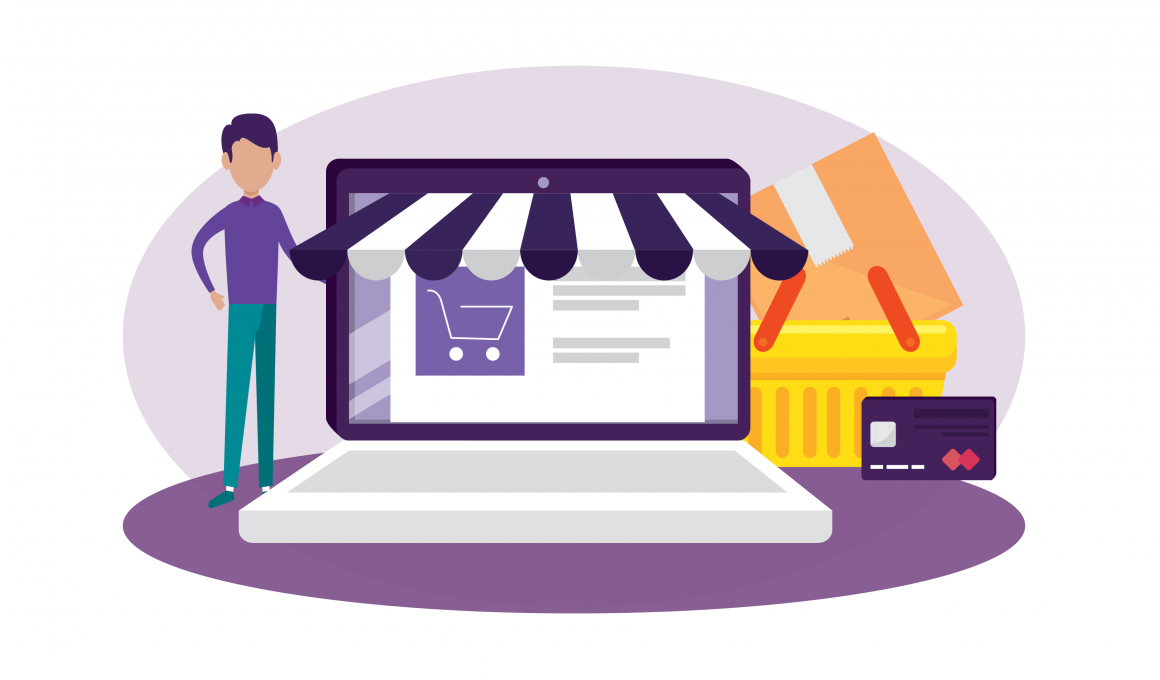The eCommerce industry is growing fast and big. In the past three years, eCommerce in the United States never saw a bump to its meteoric rise, according to the US Commerce Department.
2016 saw the eCommerce retail sales in the US net $390 billion. The following year, the eCommerce industry raked in $453 billion. In 2018, eCommerce enjoyed a total profit of $517 billion. Whether they are buying physical items, services, or digital goods, there is no denying that eCommerce has definitely evolved from novelty to norm.
People are buying online on their mobile phones and desktops. And their number is growing every single day. If you’re running an eCommerce business and actually succeed in this growing industry, you will need a reliable and comprehensive eCommerce software to help you reach your goals. Read on to know more about the functions of e-commerce software.
1. Centralize All Business Information
Information is a critical component to the success of any business endeavor. An eCommerce software should let you put all your information and crucial ecommerce statistics in one unified and accessible place for quick access, retrieval, and analysis.
From customer data and the status of your inventory to the dates of your deadlines, you and the rest of your organization need to have immediate access to all business-related information. And that information should be relevant and up to date. When you have reliable information at your fingertips, you can quickly make adjustments and changes to your operations, quickly identify opportunities and organize your priorities.
You can generate sales reports and analytics for a number of purposes like evaluating the performance of your stores and sales representatives, and discovering customer patterns and behaviors. An eCommerce software will give you tons of eCommerce marketing ideas and let you gain insights into your operations and your customers – insights you can use to move your business forward.
2. Widen Your Reach
The world is becoming increasingly digitized. The number of consumers making purchases online is exponentially growing as well. One advantage of having an eCommerce software for running your business is to attract such customers and increase eCommerce traffic to your website or online store.
Both your existing customers and potential buyers spend a significant amount of their time online, whether on a desktop or a mobile device. In mobile device-based purchases, the US Commerce Department 2018 eCommerce data showed that 40% of US retail sales were transacted through a mobile device.
With an eCommerce software, you have a powerful tool that lets you connect and engage with your audience via multiple channels (i.e. email, voice, social media, and mobile). You can post ads in websites and blogs, send personalized newsletters, and deliver relevant content to your customers and leads at the most opportune time through platforms they prefer.
3. Achieve Localization
Opening online stores that cater to specific geographies entail a myriad of challenges such as language barriers, culturally and contextually correct content, and payment processing regulations, policies, and restrictions.
The success of online international stores hinges on a number of things. But you won’t get far if you are not able to provide your target consumers a shopping journey that closely resembles their normal native experience. In a compiled selection of B2B eCommerce case studies by Magento, the majority of consumers tend to gravitate towards and do business with online stores by international brands when these stores have a “local” feel.
Majority of eCommerce platforms are made with localization features that enable users to support their online international store operations. These ecommerce software features normally include website translation, currency conversion, secured international payments, and international shipping. The tricky part is finding one that suits your localization requirements, preference, and budget.
4. Using The “Psychology of Choice” to Sell More
Consumers love it when they are presented with a wide range of choices. However, consumer psychologists and marketing experts warn that presenting too many options can overwhelm your customers and leave them further frustrated and dissatisfied. Bombarding them with a variety of products at once may leave them confused. This is what experts brand as the “psychology of choice.” It can be quite tricky to capitalize on but it’s not impossible.
So how does an eCommerce software help you use the “psychology of choice” to sell more? eCommerce platforms allow you to offer your customers and potential buyers more choices without pushing them away through the “Similar Products” or “Related Products” sections or widgets. Instead of offering various and random products, you can recommend ones that go together with what they’re currently purchasing. For instance, if a buyer adds a charger to their cart, you can offer cables and adapters to go with it.
You can customize the content, images, and product descriptions to make them more relevant to the customer. A number of eCommerce systems let you build your own “Related Products” section via API and take charge of the controls and configurations so that it appears smart and relevant to the buyers.
You give your customers choices that they can resonate with without drowning them. And when you are able to do that, then opportunities to upsell and cross-sell multiplies. In addition, keep up with upcoming ecommerce trends to stay competitive.
5. Enhance Internal and External Communications
Communication is crucial in any business structure. Managers need to communicate with their staff back and forth to ensure operations run smoothly, issues immediately addressed, instructions properly relayed, and more. Communication is key to effective collaboration and maintaining efficiency and productivity.
A good eCommerce software should allow for effective and seamless internal communication via multiple channels such as voice, chat, and email. It helps you to quickly gather information in real-time and speed up your decision-making process.
Customers need to communicate with your business representatives as well. from product queries and customer support to closing deals, among others. A slight delay in the communication between your business and your customers could mean a huge blow to your revenue and may impact your brand adversely. And you don’t want that.
Communication with your customers is also a great source for insights about your company, your brand, and products. There is no perfect barometer to success than what your customers have to say. As your representatives engage your customers, you can gather essential information that will be crucial to your success.
You identify your customers’ intentions and motivations, discover trends and shifts in shopping patterns, determine which products sell fast, and spot opportunities to sell more, but improve on your deficiencies to further strengthen your relationships and attract more business.
Add More Value To Your eCommerce Business
Consumers of today place so much value on their time and having a top eCommerce software helps you improve and streamline your customers’ user experience. They don’t want to spend more time on your store more than they have to unless they want to.
Whether they are making a quick online purchase, or shopping around still undecided, or looking for an expert to help them with a product they just bought, a good eCommerce software makes their whole journey remarkable because the whole process is smooth and clutter-free.
Customer satisfaction is a valuable commodity in this industry and if your customers are thoroughly satisfied, you can expect the value of your business to go up.



